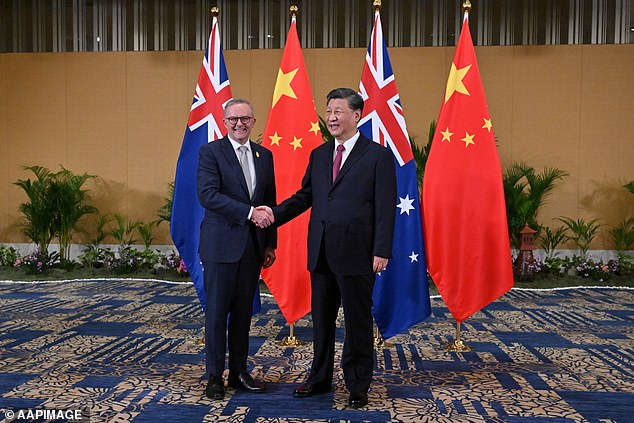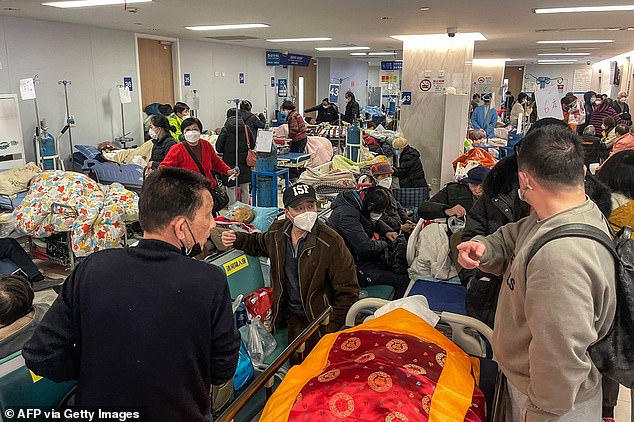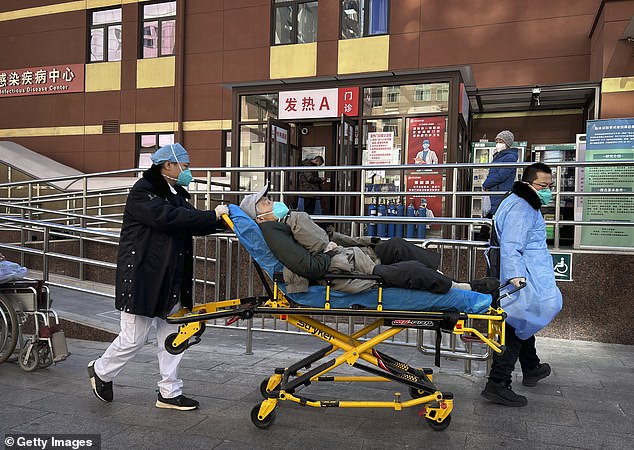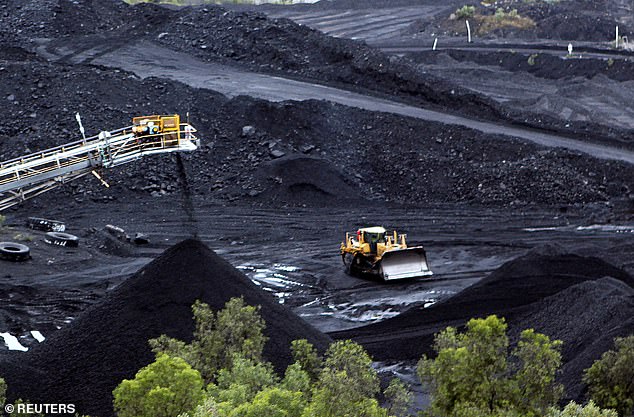Australia and China hold meetings to discuss handling of Covid-19 pandemic
>
Australian officials have been meeting with Beijing to discuss a joint response to the rising wave of Covid-19 in China.
Chinese Foreign Ministry spokesman Wang Wenbin revealed on Thursday that various discussions have already taken place between the two nations.
“In addition, in recent days, the relevant Chinese authorities held a series of bilateral meetings with the EU and Australia to have exchanges on Covid-related issues and strengthen response cooperation,” he said.
It comes as China is being hit by a Covid outbreak with estimates that 64 per cent of the country has been infected and images emerging showing overcrowded funeral homes and crematoria.
Australia has joined a growing list of countries around the world that have introduced mandatory Covid-19 tests for travelers coming from China.
Tensions have been thawing between the two countries with Beijing accepting coal imports for the first time in two years, though China has warned that progress could fizzle out if Australia pursues its military deal with the US.

Australian officials have been meeting with Beijing to discuss a joint response to the rising wave of Covid-19 in China.


Chinese Foreign Ministry spokesman Wang Wenbin revealed on Thursday that several discussions have already taken place between the two nations (pictured, Chinese residents at Tongren hospital in Shanghai)
Australia’s Department of Health and Aged Care said in a statement that a meeting had been held on Wednesday with the prospect of further discussions on the horizon.
“The discussion provided an opportunity to exchange information about our respective COVID-19 situations and discuss clinical management approaches,” it said.
‘Both countries agreed on the importance of continuous communication and information sharing.
“We look forward to further opportunities to discuss the COVID situation and our respective responses with China.”
China last month abruptly abandoned the strict anti-virus regime of mass lockdowns that fueled historic protests across the country in late November and finally reopened its borders on Sunday.
The abrupt rollback of restrictions has unleashed the virus on China’s 1.4 billion people, more than a third of whom live in regions where infections have already passed their peak, according to state media.
Although international health experts have predicted at least 1 million COVID-related deaths this year, China has reported just over 5,000 since the pandemic began, one of the lowest death rates in the world.
Wang insisted that Chinese officials have been open with the international community about the virus outbreak.
“We report the spread of the virus to the WHO as soon as possible,” he said.
We immediately sequenced and published the genome of the virus and shared China’s protocols for diagnosis, treatment and containment with the world.


It comes as China is being hit by a Covid outbreak with estimates that 64 percent of the country has been infected and images emerge showing crowded funeral homes and crematoria (pictured, a Chinese patient on a stretcher in Beijing)
‘Those efforts marked an important contribution to global vaccine and drug research and development. We have been in close communication with the WHO.
The first shipment of Australian coal will arrive in China this month as the Chinese Communist Party seeks to rebuild its economy after being hit by the pandemic.
China was careful never to announce an official ban on Australian coal, yet imports fell 85 percent in 2021, with the country importing coal from the United States, Indonesia and Russia.
Despite the development, China will maintain restrictions on wine, barley and lobster that were introduced after the United States, the United Kingdom and Australia signed a security pact.
There are hopes these bans will be lifted after four Chinese power companies start buying Australian coal from April 1.
Prime Minister Anthony Albanese and Chinese President Xi Jinping first met in November last year, while Penny Wong recently met her counterpart Wang Yi in the Chinese capital Beijing in December.


Tensions have been thawing between Australia and China with Beijing accepting coal imports for the first time in two years, though China has warned that progress could fizzle out if Australia goes through with its military deal with the US.
But China’s ambassador to Australia, Xiao Qian, has warned that it could all come crashing down with devastating effect on local jobs if Australia persists with US military deals.
“If that happens, that’s not going to serve the interests of Australians,” he said. “Perhaps it will serve the interests of other countries.”
China has reportedly offered to drop the trade war if Australia withdraws its complaints to the World Trade Organization over bans on certain products.
But that offer now appears to be subject to Chinese concerns over Australia’s military upgrades through the planned $70bn fleet of nuclear submarines and a $558m deal to buy HIMARS missile launchers.
